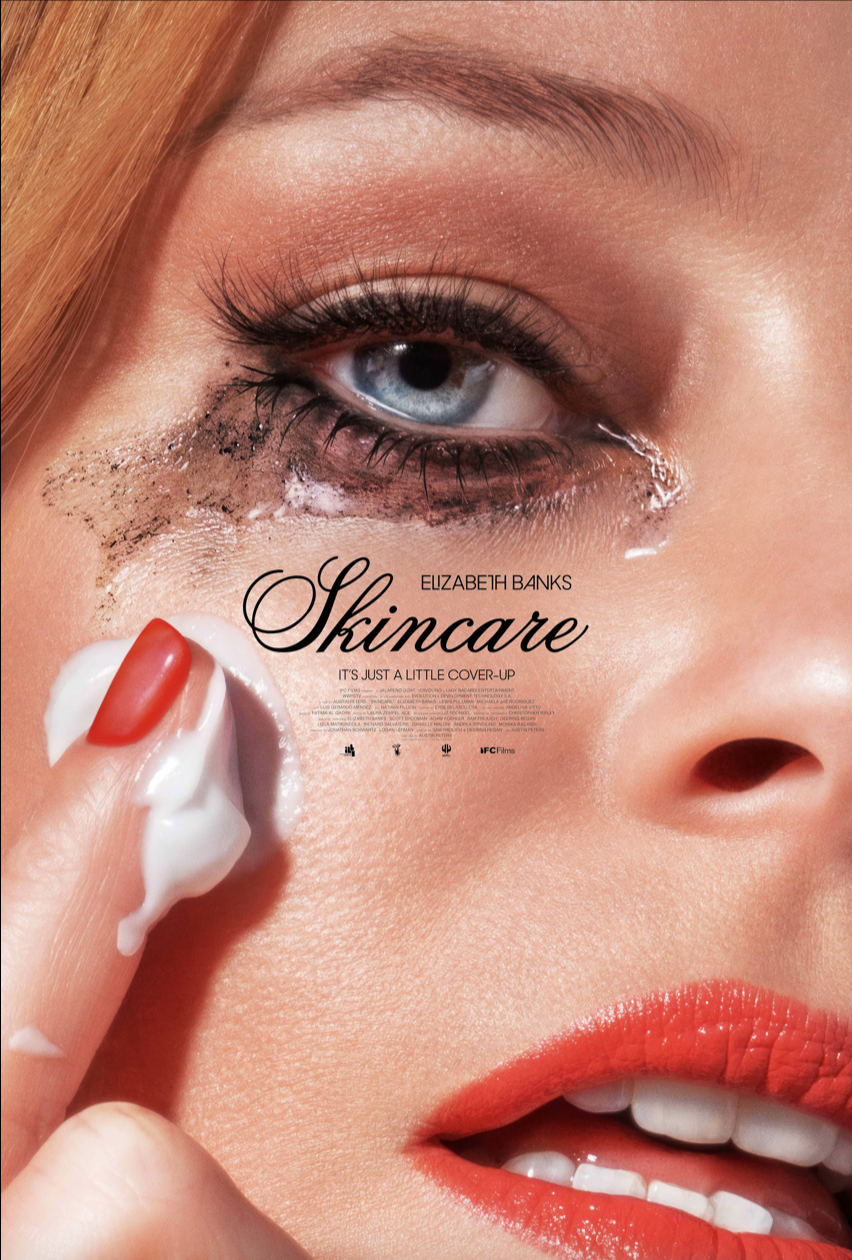
Skincare
August 14, 2024 / Kevin Ward — ★★★★
The film, starring Elizabeth Banks as Hope Goldman, delves into the complexities of female empowerment, blending humor with darker, more suspenseful elements. It was written and directed by Austin Peters and is loosely based on the true story of Dawn Daluise, who was accused of hiring a hitman to kill a rival esthetician who had opened a competing business nearby. This film portrays Hope's journey as a woman navigating the cutthroat world of entrepreneurship, where her ambition and drive are tested by external forces intent on bringing her down.
Hope's struggle to launch her skincare line while dealing with financial strain reflects a broader theme of women's obstacles in male-dominated industries. The film doesn't shy away from showcasing the harsh realities of being a woman in business—where every move is scrutinized, and any sign of weakness can be exploited. The malicious hacking and smear campaign that targets Hope serves as a metaphor for the societal pressures women endure to maintain a flawless image, both personally and professionally. This external threat catalyzes Hope's transformation, pushing her to reassess her reliance on others and the facades she has built to survive in her world.
Elizabeth Banks is as charismatic as ever as Hope. Her portrayal is not just about delivering a polished, put-together image but also about revealing the vulnerability and insecurity that lie beneath. These layers are crucial to the film's exploration of female empowerment, as they highlight the often-unseen internal battles that women face.
One of the most memorable examples of this duality is when Hope introduces herself to Luis Gerardo Mendez'scharacter, Angel Vergara, her new neighbor and direct competitor. In an attempt to save face and shield her insecurity about the potential threat he represents, Hope casually remarks, "I'm sure we don't have the same clientele." This line, dripping with subtle condescension, is Hope's way of asserting dominance in a situation where she feels anything but secure. However, when Angel nonchalantly agrees with her assessment and reiterates that sentiment, Hope's demeanor shifts sharply. Her expression, barely masking the insult she perceives, conveys a mix of indignation and disbelief—"What the f🤩k is that supposed to mean?"—capturing the internal conflict between her outward confidence and inner doubt. Banks' performance in these moments is pitch-perfect as she navigates the delicate balance between comedy and the underlying seriousness of Hope's struggle.
As the film progresses and the tone shifts to a thriller, the theme of empowerment becomes even more pronounced. Hope's initial instinct to rely on the men around her—whether it's Lewis Pullman's Jordan, the life coach with his dubious motivations, or Nathan Fillion's Brett, the smarmy talk show host—reflects a standard societal narrative where women are expected to seek male approval or assistance to solve their problems. However, the film subverts this trope by showing the limitations and dangers of such reliance. Hope's realization that she must take matters into her own hands is a decisive moment of self-empowerment. It's not just about overcoming external threats but also about reclaiming her agency and asserting her independence in a world that often undermines women's capabilities.
There's a particular scene where Brett is exerting some of his power over Hope, knowing he can provide the exposure she desperately needs. In this moment, Hope executes a total "boss move," completely turning the tables on him. It is particularly satisfying as it encapsulates her growth throughout the film. What starts as a journey of professional ambition becomes a story of personal empowerment, where Hope reclaims her business and identity. This arc is a testament to the film's nuanced approach to female empowerment—acknowledging women's challenges while celebrating their strength and resilience.
Overall, the film is a refreshing take on female empowerment, with Elizabeth Banks delivering one of her best performances. While it doesn't necessarily balance its tonal duality, leaning much more into comedic at first and then swinging over to thriller in the latter half, it's still a delightful ride.
Director: Austin Peters
Screenplay: Sam Freilich, Deering Regan, Austin Peters
Cast: Elizabeth Banks, Nathan Fillion, Lewis Pullman, Michaela Jaé Rodriguez, Luis Gerrado Méndez
Producer: Logan Lerman, Jonathan Schwartz
Runtime: 94 minutes
Rated: R

